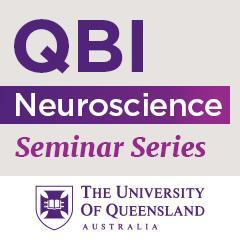A/Professor Evandro Fang, Norway : ‘Targeting on the NAD+ - mitophagy/autophagy axis for Alzheimer’s disease and healthy aging’

Speaker:
Associate Professor Evandro F. Fang
Department of Clinical Molecular Biology
University of Oslo and Akershus University Hospital, 1478 , Lørenskog, Norway
Title: ‘Targeting on the NAD+ - mitophagy/autophagy axis for Alzheimer’s disease and healthy aging’
Abstract:
There were 962 million elderly (60+) globally in 2017, and this number will rise to 2.1 billion in 2050, bringing formidable healthcare and socio-economic challenges. Ageing is arguably the highest risk factor for numerous human diseases, thus understanding the molecular mechanisms of human aging holds the promise to develop interventional and therapeutic strategies for many diseases all at once, promoting healthy longevity.
Accumulation of damaged mitochondria is a hallmark of aging and age-related neurodegeneration, including Alzheimer’s disease (AD), Parkinson’s disease (PD), and Amyotrophic lateral sclerosis (ALS). However, the molecular mechanisms of the impaired mitochondrial homeostasis and their relationship to AD are still elusive. Mitophagy is a cellular self-clearing process of damaged and superfluous mitochondria, thereby plays a fundamental role in maintaining neuronal function and survival. We hypothesize that defective mitophagy causes accumulation of damaged mitochondria, which further in combination with the two AD-defining pathologies, Aβ plaques and tau tangles, to exacerbate AD progression. Restoration of mitophagy through upregulation of cellular NAD+, a primary molecule in human health and life, forestalls pathology and cognitive decline in C. elegans and mouse models of AD and improves mitochondrial function in the AD iPSC neurons. In view of the physiological feature of NAD+ in human, our study suggests immediate interventional/therapeutic potential for both normal ageing and age-related memory loss.
References1-5
1. Lautrup, S., Sinclair, D.A., Mattson, M.P. & Fang, E.F. NAD+ in brain ageing and neurodegenerative disorders. Cell Metab 30, 630-655 (2019).
2. Kerr, J.S. et al. Mitophagy and Alzheimer's Disease: Cellular and Molecular Mechanisms. Trends Neurosci 40, 151-166 (2017).
3. Fang, E.F. et al. Mitophagy inhibits amyloid-beta and tau pathology and reverses cognitive deficits in models of Alzheimer's disease. Nat Neurosci 22, 401-412 (2019).
4. Fang, E.F. Mitophagy and NAD(+) inhibit Alzheimer disease. Autophagy 15, 1112-1114 (2019).
5. Fang, E.F. et al. Defective mitophagy in XPA via PARP-1 hyperactivation and NAD(+)/SIRT1 reduction. Cell 157, 882-896 (2014).
About Neuroscience Seminars
Neuroscience seminars at the QBI play a major role in the advancement of neuroscience in the Asia-Pacific region. The primary goal of these seminars is to promote excellence in neuroscience through the exchange of ideas, establishing new collaborations and augmenting partnerships already in place.
Seminars in the QBI Auditorium on Level 7 are held on Wednesdays at 12-1pm, which are sometimes simulcast on Zoom (with approval from the speaker). We also occassionally hold seminars from international speakers via Zoom. The days and times of these seminars will vary depending on the time zone of the speaker. Please see each seminar listed below for details.



